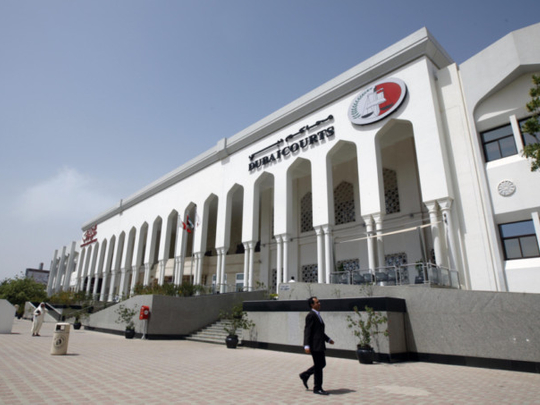
Despite the announcement by the Dubai Land Department (DLD) that there has been an increase in the value of transactions by 45 per cent in the first quarter compared with the same period last year, the real estate sector’s recovery is still likely to be slow. A sluggish global economy, regional geopolitical turbulence and depressed oil prices will continue to affect real estate in Dubai and could result in an increase in the number of realty disputes as businesses put certain commitments on hold.
However, recent proactive initiatives of the DLD to promote a transparent and professional real estate market with measurable standards, such as those set out below, will undoubtedly help reduce such disputes.
* The announcement of a proposed new landlord-tenant law that will replace the current one–size-fits-all rental regulation in April. The new law will contain separate rules for four property categories: residential, commercial, malls and educational and health care.
* The launch of the mandatory unified lease contracts in March.
* The requirement for permits to be obtained via the Trakheesi system for any announcements related to real estate property both inside and outside the country pursuant to Circular No. 13 of 2016.
* The acceleration of Dubai’s building classification project in February. Under this project all land plots, villas, commercial and residential buildings, factories and shopping centres will be registered and surveyed.
* The generous donation of Dh1 million in March from the family of the late Obeid Al Helo to support insolvent, defaulting tenants who have been convicted during rental proceedings.
Nevertheless, given the general outlook for this year, an overview of the mechanisms available to settle disputes in Dubai is timely. At the outset, it is important to note that in Dubai there is a desire among parties for amicable settlement of disputes. Failing such settlement and if no arbitration clause is included in the contract, the dispute is referred to court.
The court system in Dubai consists of a Court of First Instance, Court of Appeal and Court of Cassation. Court hearings in Dubai are generally held in public and all court proceedings are in Arabic. However, there is usually little or no oral hearing. Also, the public cannot inspect the court file. Only the parties to the litigation and their lawyers have access to these records. As a result, although all proceedings are in theory public, they remain virtually confidential in practice. In Dubai, judgments of the higher courts are not binding on the lower courts and each case is decided on its own merits and facts.
Dubai operates under a civil law system and written laws are the primary source of law. Another body of law is Shariah, which is a body of religious laws and ethical and legal rules. Shariah is founded on familiar concepts of justice, fairness and equity, and the practical result in commercial matters is often the same as that reached under many Western law jurisdictions.
Court proceedings
Proceedings are started by filing a claim in the relevant court and payment of court fee. Payment of court fees can be deferred in exceptional cases. The court fee depends on the value of the claim, and has a maximum cap of Dh40,000. This fee is payable either on an application for provisional relief, or on filing the main lawsuit.
The claim must meet procedural requirements, including the names and addresses of the parties to the action and details of the claim. Documents in support of the claim are usually annexed to the claim and must be translated into Arabic. The court issues a summons to the defendant with a hearing date, a copy of the claim and any supporting documents filed by the claimant.
Subsequent stages
Once an answer has been filed, the trial is adjourned for the claimant to respond. Further adjournments are given so that memoranda can be filed by the parties. Once the court believes that the case has been sufficiently pleaded, it reserves the matter for judgment.
The entire proceeding is based on written submissions supported by documentary evidence. The court usually appoints an expert to assist it and usually accepts the expert’s report.
Arbitration
As an alternative to court, arbitration has become increasingly popular as a means to settle disputes in the Middle East and many parties opt for resolution of disputes by arbitration under their contracts. Arbitration is beneficial when privacy is desired or if specialist arbitrators would be valuable to determining a matter. Arbitration is also usually faster than court proceedings.
For example, the Dubai Chamber of Commerce and Industry established the Dubai International Arbitration Centre (DIAC), which is in effect a rebranding of the commercial conciliation and arbitration services that have been available since 1994. DIAC has issued arbitration rules and maintains a list of arbitrators.
The Abu Dhabi Chamber of Commerce and Industry also has an arbitration centre that has issued its own set of procedural rules. Foreign arbitration institutions, most notably the International Chamber of Commerce’s court of arbitration, are often used in large disputes as well. There is also the Dubai International Financial Centre-London Court of International Arbitration Centre.
It is important to note that there are effectively no rights of appeal available with respect to the merits of an arbitration award in the UAE. The UAE federal arbitration legislation is currently practiced only in a short section of the UAE Civil Procedure Code and requires court ratification of arbitral awards. Importantly, the New York Convention on the Recognition and Enforcement of Foreign Arbitral Awards was adopted by the UAE in 2006 and allows UAE arbitration awards to be recognised and enforced internationally, as well as allowing foreign arbitration awards to be recognised and enforced in the UAE, subject to some exceptions.











